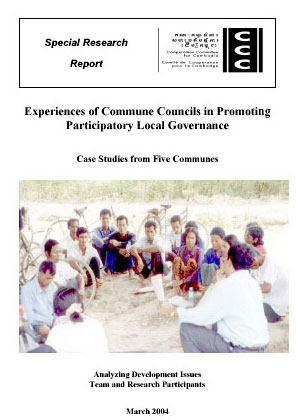Holistic Institutional Development for NGOs
This report assessed capacity development needs of civil society organizations in Cambodia. In the broader sense, the term of institutional development (ID) is defined as the ‘abilities, skills, understandings, attitudes, values, relationships, behaviors, motivations, resources and conditions that enable individuals, organizations, networks/sectors and broader social systems to carry out functions and achieve their development objectives over time.’ However, in our assessment context, the institutional development refers to holistic institutional development which is divided into three different levels: governance, program and enabling environment. The governance level includes democratic representation, board effectiveness, leadership, human resource management and financial management. The program level includes program/program cycle management, program evaluation, do no harm policy and other program/project policies. The enabling environment includes advocacy, networking, communication and resource mobilization.
The study aims to provide an up-to-date status of institutional development assessment of CCC member organizations, provincial CSOs networks and identify their roles to improve governance, accountability and inclusive policy making. In addition, the results and data from the assessment will be used as the benchmarks to develop capacity development curriculum and training materials to strengthen civil society organizations in Cambodia.













